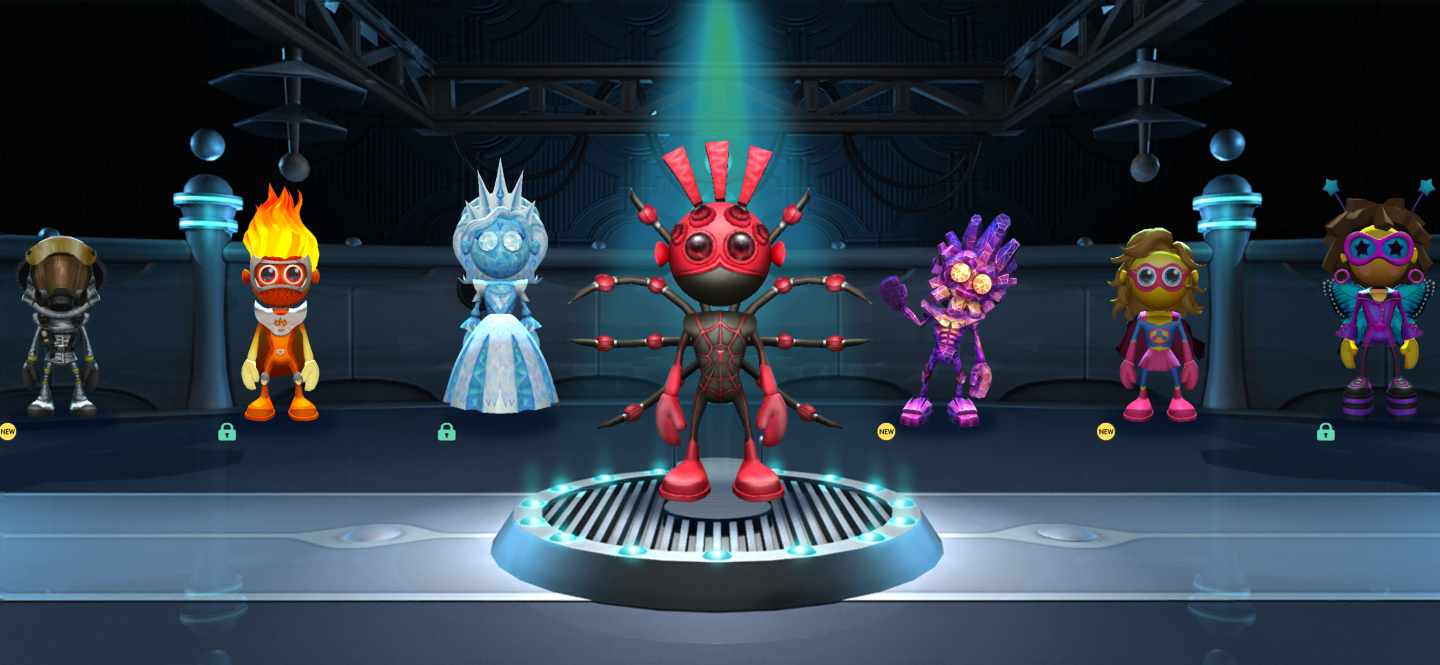This is the kind of medicine you can play.
Creating hybrid conferences, especially one going ahead as a hybrid virtual and IRL like SIGGRAPH Asia 2021 was last week, takes commitment, massive coordination and dedication. It was great to find a chance to speak with some of the icons of the industry. Especially to speak with Matt Omernick, Co-Founder and Chief Creative Officer at Akili Interactive, who has a special story about successfully bringing gaming and entertainment into the medical field, with surprising results. I spoke with Matt as he prepared to speak about Akili Interactive and the new Endeavor Rx which is now completely FDA-approved and can be part of a therapeutic program against ADHD.
Akili Interactive’s new programs and games are great examples of what is now being developed in-game production for good. There is an entire industry developing these superpowers for entertainment to create experiences for those requiring release from stigma. These new games can release the good in everyone. They also change how medicine is designed and delivered.
To describe the new term, ‘Video Games As Medicine’, you need to dig deep into the technology, discover why something works, and how it can be made even better. The journey Omernick has taken from making games just for entertainment, quickly morphs to constructing an experience to help improve the mental outlook for possibly millions of patients into the future.

Way too many people across the planet have been infected with COVID-19. Another technology being developed at Akili Interactive is hoping to tackle COVID brain fog. Evidence is mounting on long-term neurological and cognitive symptoms that can persist in some COVID-19 patients, even after the virus has left the system. Even using the most conservative estimates of the number of COVID-19 survivors that experience cognitive impairments, the numbers are staggering. Akili Interactive’s crew is working with leading academic researchers to study AKL-T01 as a potential treatment for patients with COVID brain fog.
“These digital therapies like those created at Akili Interactive have been around for almost a decade now in their infancy,” says Omernick. “It’s really, well, become real. Akili as a company really hasn’t been super vocal in the gaming world, as we have been in the technology and science world. One of our games has become the world’s first video game with FDA clearance. Now is the time to generate a little more awareness, broadly speaking, that this area is calling out for talent. We need designers, artists and game writers. SIGGRAPH Asia 2021 is the perfect place to begin the call out for creatives.”
Matt Omernick was previously with LucasArts, in fact, the games division of the Lucasfilm company, for almost a decade. While the games he art-directed with LucasArts were games like Star Wars: Force Unleashed and Star Wars: Battlefront, their audiences were Star Wars fans wanting more of that universe. They wanted to build on that foundation and the games gave them that opportunity. There was perhaps a different ready-made fan base, compared to those watching for the release of Medal of Honor.

“A First-Person-Shooter (FPS) on a console was extremely new when Medal of Honor was released,” says Omernick. “GoldenEye 007 for the Nintendo 64 broke that ground in 1997. In fact, producing an FPS to run with a controller, was at the sweet spot at that time. Steven Spielberg was working on Saving Private Ryan at the time. They’d spun off Dreamworks Interactive with Microsoft, and the spawn of that idea came from Spielberg.” The October 1999 released Medal of Honor laid the groundwork for other historic war-based combat games, ultimately leading to Activision’s Call of Duty series.
The timing for PlayStation One and then PlayStation Two for those first two Medal of Honor games was perfect, for what for FPS games on consoles and go further. Both in the gameplay and in the art. “There was a ‘wow-factor’ in those releases,” says Matt, “a sensation for the viewer of really being in there.”
These days, Matt loves to watch the Mandalorian. He respects the fact they are still extending that franchise so well with experiential screen technologies like Virtual Production, with game-engine Unreal previz and CG lighting techniques only dreamed about when LucasArts produced The Force Unleashed. “The various technologies used here, of course, are being used to give the viewer, as I said earlier, the sensation of being right there in the action,” explains Omernick. “Now, in the field I am in right now, it is these experiences that create lasting, impressionable, deep experiences, that will change the brain.”
Matt is creating ‘mental medicines’ that are intrinsically delivered through the senses. This isn’t passive entertainment. The Akili Interactive modules are interactive content but seen from a medical point of view, you can compare it to a pill, but it is highly customisable, super-real experiences that cater for certain tastes, populations or certain individuals. Endeavor Rx is at work against ADHD and AKL-T01, being developed to combat COVID brain fog are just two gamified medicines of the present and future.
These experiences are now able to change the brain for good. Immersive experiences can fool the brain to become fortified to reality’s challenges.
Related links:

This actually answered my downside, thanks!